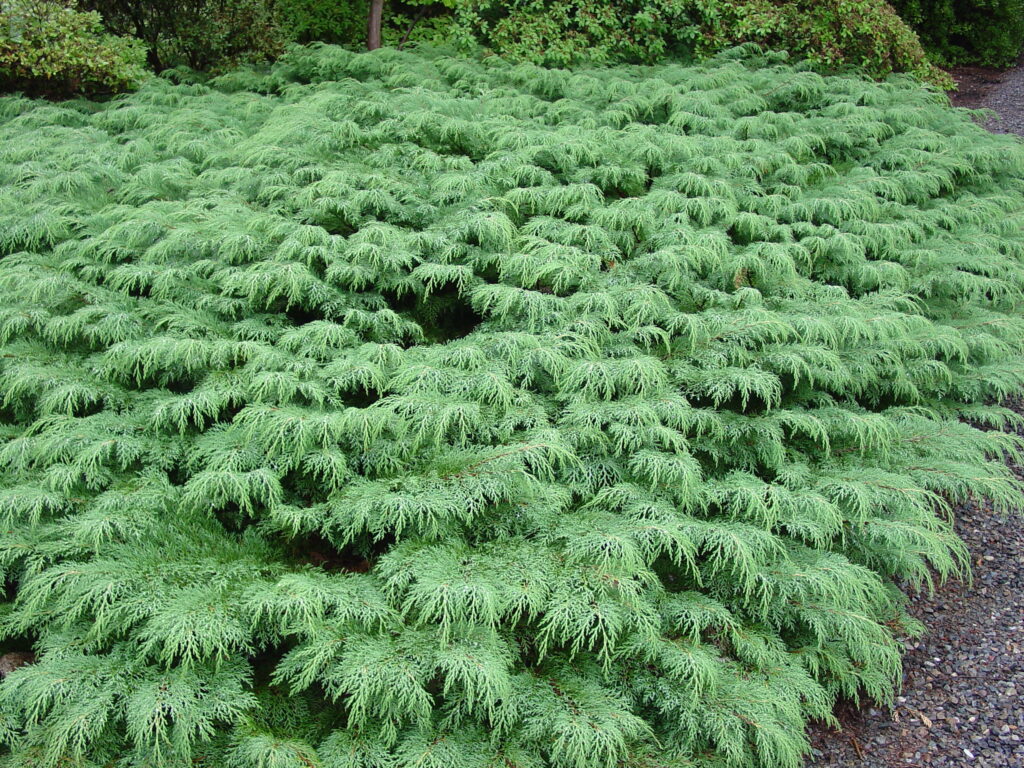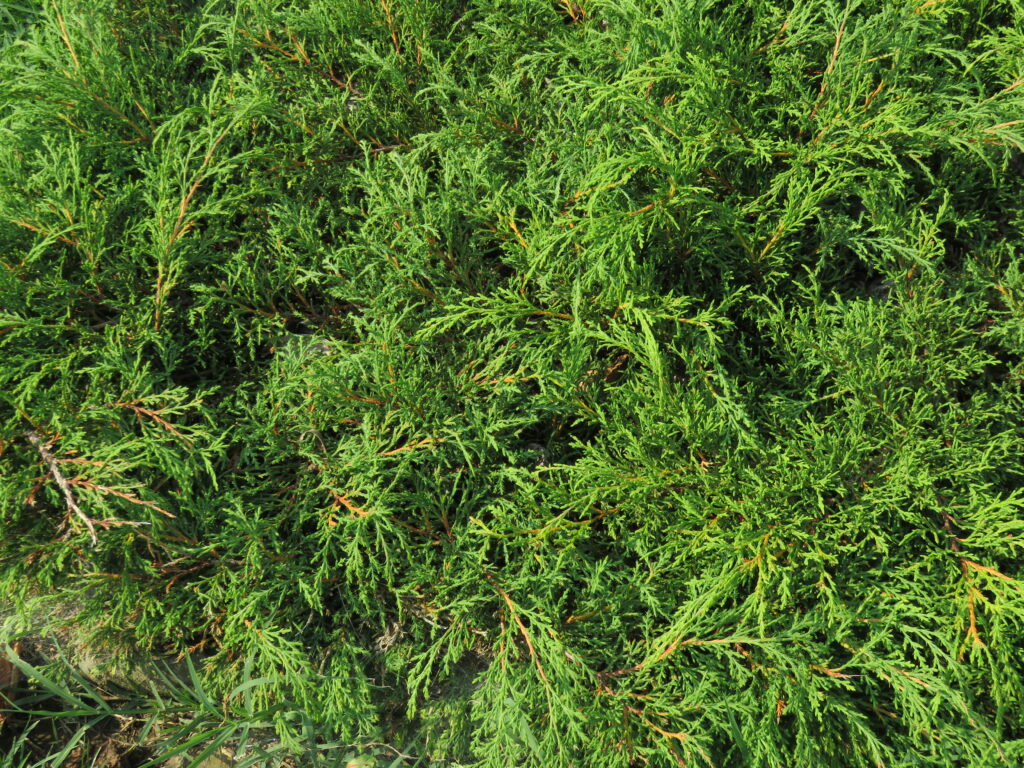
Russian arborvitae, aka Siberian cypress (Microbiota decussata), is a conifer ground cover that originates from frigid Siberia; it is exceptionally cold hardy to -40° F (USDA hardiness zones 2-7). Microbiota prospers in the cooler parts of the Mid-South (Kentucky, East Tennessee, Virginia, and Western North Carolina). Growth rate is slow to medium.
This amazing groundcover shows off its beautiful feathery green needle foliage from spring thru early fall. In fall it changes to coppery bronze in fall. It is utilized as a ground cover for banks and slopes. Microbiota takes a purple to bronze needle cast in late October and a brownish cast in winter. Spring warm-up restores its green needle color. It is more shade tolerant than and is an interesting alternative to ground cover junipers in northerly zones.
It forms a shrubby ground cover to 8-18 inches tall and may spread 10-12 feet wide. Feathery, soft-textured, scale-like (infrequently awl-shaped) foliage is arranged in flat, fan-like sprays reminiscent of arborvitae (Thuja). In appearance, it resembles the growth habit some of the horizontal junipers. Fruits are tiny, spherical, berry-like cones (to 0.25” diameter) with woody scales.
A well-drained soil is key to avoiding root rot, or plant in a dry location with a couple of hours of morning sun or light shade all day long. While exceptionally cold hardy, microbiota does not tolerate summer heat, drought, and high humidity. Alternatively, microbiota prefers good soil moisture drainage and cool temperatures, and tolerates windy exposed sites once fully established after two years. Deer and most disease and insect pests do not trouble it.

Celtic Pride® Siberian cypress is the leading microbiota cultivar selected for its uniform growth and resistance to tip dieback that plagues conventional varieties. Celtic Pride transforms areas into a lush evergreen carpet. It is intolerant to poorly drained soils, and hot and humid summers. Root rot may develop in excessively wet areas.
Microbiota is utilized as a specimen ground cover for banks and slopes, a ground cover for rock gardens, shrub borders, a costly lawn grass alternative around building and home foundations, and a shade alternative to ground cover junipers.
Although not commonly sold at local garden centers, microbiota may be purchase from online specialty nurseries in the U.S. and Canada.

 Posted in
Posted in 
